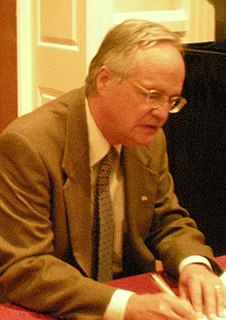A Quote by Lewis Mumford
In the name of economy a thousand wasteful devices would be invented; and in the name of efficiency new forms of mechanical time-wasting would be devised: both processes gained speed through the nineteenth century and have come close to the limit of extravagant futility in our own time. But labor-saving devices could only achieve their end-that of freeing mankind for higher functions-if the standard of living remained stable. The dogma of increasing wants nullified every real economy and set the community in a collective squirrel-cage.
Quote Topics
Achieve
Both
Cage
Century
Close
Collective
Come
Community
Could
Devices
Dogma
Economy
Efficiency
End
Every
Extravagant
Forms
Freeing
Functions
Futility
Gained
Higher
Increasing
Invented
Labor
Limit
Living
Mankind
Mechanical
Name
New
Nineteenth Century
Only
Our
Own
Processes
Real
Remained
Saving
Set
Speed
Squirrel
Stable
Standard
Thousand
Through
Time
Wants
Wasteful
Wasting
Would
Would Be
Related Quotes
There are winners and there are losers. And as much as we would like to help the losers, if we do it in the way that directs the limited capital of the society to support the low-productivity parts of the economy, it means that the rest of the economy - our overall standard of living - will not rise as much as it could.
We humans have had from time unknown the compulsion to name things and thus to be able to deal with them. The name we give to something shapes our attitude toward it. And in ancient thought the name itself has power, so that to know someone's name is to have a certain power over him. And in some societies, as you know, there was a public name and a real or secret name, which would not be revealed to others.
Extrapolated, technology wants what life wants:
Increasing efficiency
Increasing opportunity
Increasing emergence
Increasing complexity
Increasing diversity
Increasing specialization
Increasing ubiquity
Increasing freedom
Increasing mutualism
Increasing beauty
Increasing sentience
Increasing structure
Increasing evolvability
The system is not intended as a substitute for private savings, pension plans, and insurance protection. It is, rather, intended as the foundation upon which these other forms of protection can be soundly built. Thus, the individual's own work, his planning and his thrift will bring him a higher standard of living upon his retirement, or his family a higher standard of living in the event of his death, than would otherwise be the case. Hence the system both encourages thrift and self-reliance, and helps to prevent destitution in our national life.
There is a balance, a kind of standoff between the time continuum and the human entity, our frail bundle of soma and psyche. We eventually succumb to time, it's true, but time depends on us. We carry it in our muscles and genes, pass it on to the next set of time-factoring creatures, our brown-eyed daughters and jug-eared sons, or how would the world keep going. Never mind the time theorists, the cesium devices that measure the life and death of the smallest silvery trillionth of a second.... We were the only crucial clocks, our minds and bodies, way stations for the distribution of time.
Only by transforming our own economy to one of peace can we make possible economic democracy in the Third World or our own country. The present economy generates wars to protect its profits and its short-term interests, while squandering the future. Unless we transform the economy, we cannot end war.
I was working in a church in Florida as a youth intern, which means I really didn't do much other than staple stuff. I'm from Dallas, Texas, and every time my grandmother would call-she would call me any time of the day-I'd be home answering the phone. She was like, "What do you do all day?" and sarcastically I would say, "Well, I'm trying to chalk off the next year to spend time finding a band name." And she said, "Well mercy me, why don't you get a real job?" I thought, "Wait a minute. That's the perfect name." That kind of freed up my year but that's where the name came from.
It would seem as if the rulers of our time sought only to use men in order to make things great; I wish that they would try a little more to make great men; that they would set less value on the work and more upon the workman; that they would never forget that a nation cannot long remain strong when every man belonging to it is individually weak; and that no form or combination of social polity has yet been devised to make an energetic people out of a community of pusillanimous and enfeebled citizens.






































